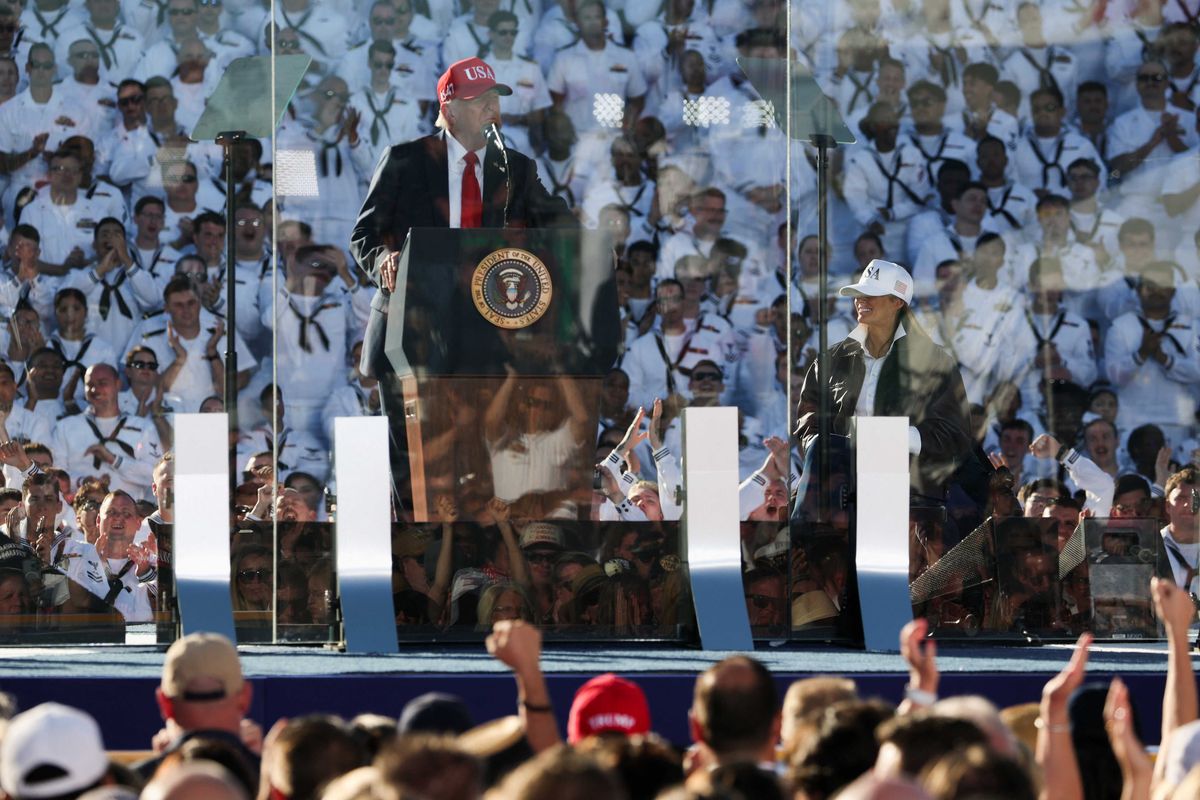
In December, 2024, UnitedHealthcare CEO Brian Thompson was tragically gunned down in Manhattan after receiving numerous threats relating to his company’s denial of healthcare coverage. The shooter, Luigi Mangione, harbored hatred towards corporate America. In a rage over corporate profiteering that hurts the little guy, he shot Thompson in the back as he was going to a meeting.
While the violence was shocking, even more shocking was that a sizable number of Americans sympathized with the murderer rather than his victim. Public polls found that a majority could personally relate to Mangione’s rage over deny, delay, don’t pay rejections of private insurance claims.
What is clear is that Americans harbor pent-up resentment and despair toward private insurance. Ordinary Americans report ongoing battles with coverage denials, ballooning medical bills, and cumbersome appeals processes that drag on for months or years as insurers seek to maximize profits by minimizing what they pay.
Trump’s plan to privatize the federal government
Characteristically tone deaf to the wants and needs of ordinary Americans, Donald Trump is seeking to increase rather than decrease privatization of all government services, seeking to extract profits from heretofore not-for-profit entities.
Thanks to Citizens United, the disastrous 2010 Supreme Court case that gave wealthy corporations outsize influence over elections, Trump is indebted to hundreds of industry leaders from tech, auto, education, banking, arms, prison, healthcare, and fossil fuel sectors. Attuned to quid pro quo expectations, Trump is working out which government agencies to hand over to his billionaire donors, and which agencies should be shuttered altogether because they are unable to turn a profit.
Pursuant to the mandates of Project 2025, which Trump disavowed adamantly but disingenuously during his 2024 campaign, the Trump administration is actively seeking to defund many departments entirely. Sen. Sheldon Whitehouse (D-RI) called it a tool of “creepy billionaires” who seem to get unhealthy pleasure from depriving Americans of the government services their tax dollars have paid for.
In service to Project 2025’s oligarchic takeover of the remaining agencies, Trump is targeting these federal agencies for privatization:
- U.S. Postal Service (USPS)
- Department of Veterans Affairs (VA)
- Federal Emergency Management Agency (FEMA)
- Transportation Security Administration (TSA)
- National Weather Service
- Fannie Mae and Freddie Mac mortgage companies
- National Parks
- Tennessee Valley Authority (TVA)
- Centers for Disease Control and Prevention (CDC).
Handing agencies to wealthy donors
Trump and his billionaire cabinet are either unaware or uninterested in the fact that most Americans oppose privatizing most government services. In a 2022 survey, 85 percent of Democrats and 74 percent of Republicans said the federal government should play a major role, for example, in responding to natural disasters.
It also doesn’t take much imagination to envision national parks Disneyfied for maximum profit, or how Trump’s plans to extract resources like coal and rare earth minerals will affect America’s public lands and the remaining animals that live there.
In a 2025 survey, the vast majority of Americans also opposed privatizing the U.S. Postal Service, with APWU’s president noting that plans to privatize the Post Office “are about enriching Wall Street and not serving Main Street,” as privatization will lead to higher prices for postal services across the board.
Research confirms system abuses, other ugly effects
While some claim a profit motive could make some government services more efficient, research shows the harmful effects of privatization across a broad spectrum:
- Healthcare: A recent study published in Annals of Internal Medicine examined outcomes at hospitals over a 10-year period, concluding that private equity ownership of hospitals resulted in measurably higher— 13 percent--death rates among Medicare emergency patients caused by corporate owners’ pursuit of higher profitability. Data illustrate that when hospitals companies cut costs leading to staff cuts, lower wages, and more patient transfers, more patients die.
- Education: Research from the National Coalition for Public Education concludes that vouchers do not significantly increase test scores on average, and may even result in worse outcomes for students. Not only do many students’ test scores deteriorate when they attend private schools through voucher programs, research from the Economic Policy Institute confirms that vouchers also harm the quality of education delivered in public schools by diverting resources from them.
- Corrections: As reported in Labour Economics, Washington State University researchers have shown that privatized prisons lead to more inmates, more abuse, and longer sentences. For-profit correctional facilities hinder rehabilitation rates because they receive funding through service contracts, many of which are based on the total number of inmates and their average length of time served.
- Corruption: Privatized corrections also introduce a new avenue for corruption. One documented example was the “kids for cash” scandal in Pennsylvania, where judges were bribed by a private prison company to give harsher sentences to juvenile offenders instead of probation, to order to increase occupancy at for-profit detention centers.
The transfer of governance to private entities not only consolidates power in private hands, but also erodes fundamental legal safeguards, including environmental, civil rights and accountability. We have recently seen how Trump’s private ICE detention centers evade standards of civil rights imposed on government-run facilities, resulting in cruelty and violations that remain hidden from public view unless someone sues, and even then, public disclosures may be limited by protective orders.
In his poignant Substack essay The Age of Bought Loyalty, former Wall Street healthcare analyst Mark McInerny observes, “What we’re seeing isn’t generosity. It’s the transfer of sovereignty from public to private hands.” To paraphrase the rest, when billionaires run the government, they aren’t patching a hole in the system — they’re proving the system now belongs to their class.
- Sabrina Haake is a columnist and 25+ year federal trial attorney specializing in 1st and 14th A defense. Her Substack, The Haake Take, is free.




